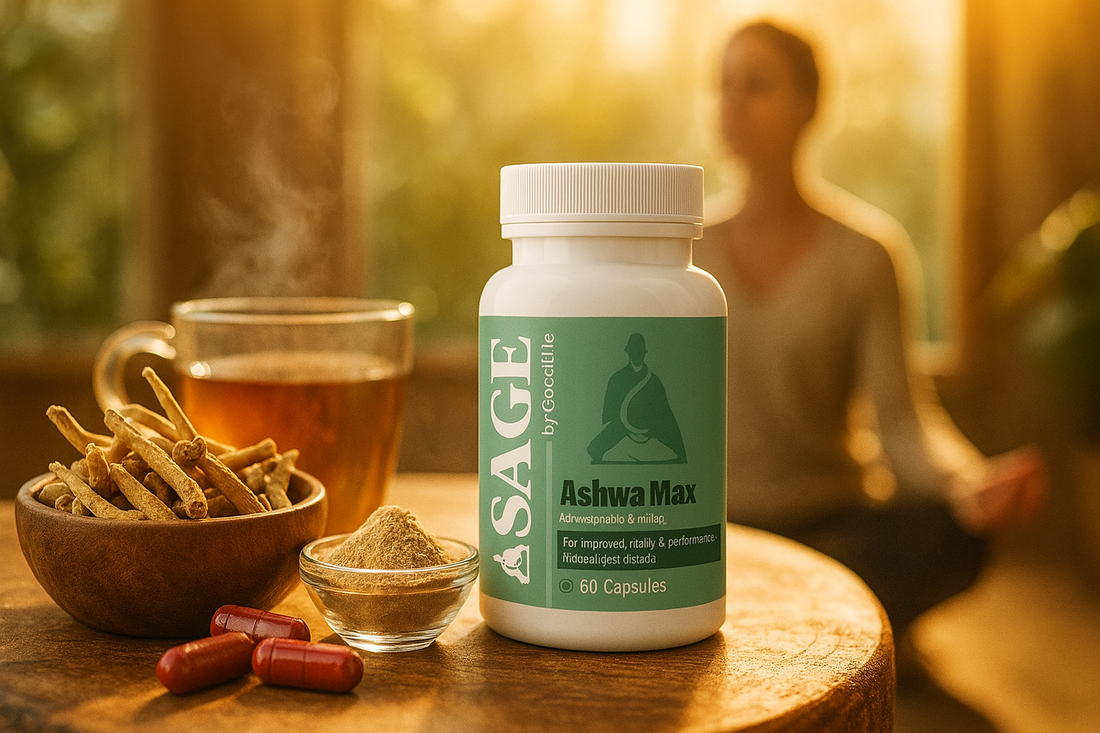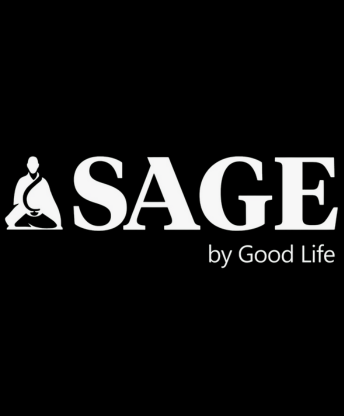
Ashwagandha: Nature’s Ancient Adaptogen for Modern Stress
Share
In a time of relentless schedules, digital overload, and ever-present pressure to perform, managing stress has become a daily concern for millions. While modern medicine continues to advance, a growing number of people are turning to ancient remedies for solutions that address not just symptoms, but also the root causes of stress and imbalance. Among these, Ashwagandha has emerged as a leading adaptogenic herb, seamlessly bridging the wisdom of Ayurveda with the demands of contemporary life.
What is Ashwagandha?
Ashwagandha (Withania somnifera), sometimes called “Indian ginseng” or “winter cherry,” is a shrub native to India, North Africa, and the Middle East. Its roots and leaves have been used for over 3,000 years in Ayurvedic medicine as a tonic to promote strength, vitality, and mental equilibrium. The term “adaptogen” describes herbs that help the body adapt to stressors and maintain homeostasis and ashwagandha is one of the most researched and celebrated adaptogens known.
The Science of Stress: Why Modern Life Needs Ancient Solutions
The human stress response, governed primarily by the hormone cortisol, is a natural evolutionary mechanism that readies the body for “fight or flight.” In the short term, this response is protective. But modern life bombards us with chronic psychological stress work deadlines, financial strain, social pressures, and the constant buzz of notifications. Over time, persistent cortisol elevation can lead to anxiety, fatigue, poor sleep, digestive issues, and increased risk of disease.
This is where adaptogens like ashwagandha shine. Unlike pharmaceutical anti-anxiety or sleep medications which simply dampen symptoms, ashwagandha gently nudges the body’s internal systems back into balance, minimizing the negative impact of stress without sedating or altering mood unnaturally.
Ashwagandha’s Key Benefits for Stress and Well-being
1. Cortisol Modulation & Adrenal Health
Scientific studies confirm that ashwagandha can normalize cortisol levels, mitigating the “wired and tired” feeling that plagues so many. Regular supplementation has been shown to help the body resist stress, alleviate burnout, and even improve markers of adrenal fatigue.
2. Bolster for Mental Health
Clinical trials have demonstrated ashwagandha’s effects in easing anxiety and symptoms of depression, likely by balancing neurotransmitters like serotonin and GABA. Unlike conventional medications, there’s little risk of drowsiness or dependency making it an attractive option for those seeking gentle, ongoing support.
3. Improved Sleep Quality
Chronic stress is a top culprit behind insomnia and restless nights. Ashwagandha can promote restful sleep by calming the mind and supporting the natural circadian rhythm. Studies reveal improvements in both sleep onset and duration, as well as overall sleep quality, especially when taken in extract form.
4. Cognitive Clarity & Focus
Beyond its stress-lowering effects, ashwagandha is a nootropic supporting brain health and cognitive performance. Research shows enhanced memory, processing speed, and executive function in those supplementing with ashwagandha, making it popular among students, professionals, and anyone seeking a mental edge.
5. Support for Immune and Hormonal Balance
Prolonged stress impairs immune function and hormonal balance another area where ashwagandha offers relief. It has been shown to boost immune markers, support thyroid health, and aid in maintaining healthy testosterone and reproductive hormone levels in both men and women.
6. Physical Endurance and Vitality
Ashwagandha helps support physical energy at the cellular level, reducing fatigue, enhancing stamina, and aiding recovery after exercise. Its adaptogenic mechanisms allow the body to better handle physical as well as mental challenges, reinforcing overall resilience.
How to Use Ashwagandha for Modern Stress
The most common delivery forms are capsules, powders, or teas. Standardized root extracts ideally certified and tested for purity deliver the highest concentrations of withanolides, the active healing compounds. While some benefits are felt within days, lasting effects typically unfold over 4 8 weeks of consistent use.
Safety is one of ashwagandha’s prime advantages: it’s generally well-tolerated, with only mild occasional digestive upset or drowsiness in sensitive individuals. However, it’s wise for pregnant women, those with autoimmune conditions, or anyone on thyroid or sedative medications to consult a practitioner before starting.
Ashwagandha in Contemporary Wellness Formulas
Modern supplements, like Sage by Good Life’s blends, maximize ashwagandha’s utility by pairing it with synergistic botanicals such as Sea Moss, Black Seed, and Vitamin D3. These advanced formulas offer a holistic approach layering stress relief with immune support, mineral nourishment, and endocrine balance for whole-body benefit.
A Return to Nature’s Proven Healer
As the pace of daily living continues to accelerate, and anxiety, burnout, and fatigue become near-universal experiences, the role of adaptogens has never been more vital. Ashwagandha stands out not only for its ancient legacy, but for its rigorous scientific validation and practical ability to address modern stress at multiple levels.
By “teaching” the body how to handle stress and supporting equilibrium across mind and body, ashwagandha represents the best of both worlds rooted in time-honored tradition, yet profoundly relevant for today’s challenges. Supplementing this ancient herb empowers individuals to reclaim resilience, calmness, and well-being naturally.





